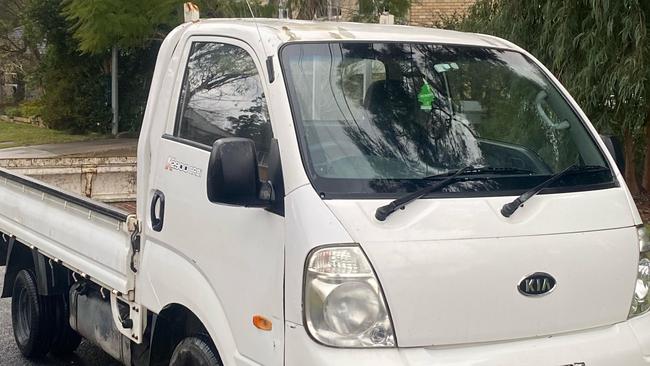Australians quit $140,000 jobs over burnout as part of the Great Resignation
Burnt out Aussies are quitting their high-paying jobs, sick of long hours and bad management, as they embrace the Great Resignation.
Work
Don't miss out on the headlines from Work. Followed categories will be added to My News.
An Australian man, who was expected to be online for meetings as early as 5am and work through until 8pm, has ditched his $140,000 job, despite having “absolutely nothing” lined up.
Fed up with “terrible” management and “stress and anxiety”, Greg* is one of many Australians embracing the Great Resignation.
With predictions two million people across the country are ready to quit their jobs, the phenomenon is set to slam workplaces over the next six to 12 months, Allianz Australia research showed.
Some are looking for a stress-free life – such as Paul* who left his $100,000 finance job, sick of “rubbish meetings” and a terrible culture, to work as an overnight cleaner at his local McDonald’s – taking a hefty pay cut to escape the corporate nightmare.
Many other Australians are also throwing in six-figure jobs with nothing to go to, preferring to be unemployed than unhappy at work.
Greg, who was managing a sales team, predicts he will never be paid $140,000 again in his life either as he said he isn’t university educated.

The 37-year-old said fatigue, being put on stress leave for a week, pressure from management and a disconnect from the team as he worked remotely all contributed to him blowing up that particular career.
“My mental health suffered. The expectations of being on a call at 5am and then 8pm or 9pm at night and the stigma that suffered if you weren’t on at call at 5am and missed an update with a new product – it was very anxiety inducing,” he told news.com.au.
“Work-life balance wasn’t there. I would be at dinner with friends and family and checking emails to be sure I hadn’t missed anything.
“Sometimes, because we were dealing with offices in the northern hemisphere, we would get 4.30am or 5am meeting requests with little to no notice.”
Have a similar story? Continue the conversation sarah.sharples@news.com.au

The Melbourne man said the executive team also promoted a “poor culture” by sending emails as late as 1am and also working insane hours, often from 5.30am to 9.30pm.
He said when he attempted to raise his concerns they would either be addressed “poorly” or outright ignored.
However, he said he still has a number of friends at the business.
“The people are the thing I’m going to regret leaving most,” he said.
“The role and process and workload are not something I will look in the rear-view mirror at, but to go from a job I enjoyed to forcing myself out of the door for mental health, stress and anxiety reasons is crazy.
“It’s still scary when you leave something like that to go to nothing when you feel like your hand is forced.”
The married homeowner said a colleague resigned the day after him, seeing the company lose 14 years of experience “overnight”.

He said even if the company had offered him tens of thousands of dollars more, he wouldn’t have stayed.
“I left just after a pay rise so that didn’t factor into my thinking,” he said. “One thing that would have made me stay is if they said they would be seriously addressing the declining culture.”
Greg is now looking for roles that pay well below his previous role in the $70,000 to $90,000 range.
“While I’ll be trading down a significant salary, I’ll be trading up to a much better work-life balance,” he said.
“There is more to life than a high salary, there are much bigger things that come from a job rather than just cash.”
Elizabeth* is another Australian who threw in her $140,000 job, with nothing else lined up, after being in the role for just seven months.
The global buyer said after becoming “burnt out” working 12-hour days with “endless” Zoom meetings, the promise of extra staff being brought on never eventuating and no work-life balance, she was done.
“There was no life because you were chained to your computer the whole day and also dealing overseas with different time zones, so going outside for 10 or 12 minutes for a bit of sunshine was it, but it was rare,” she told news.com.au.
“There were a lot of back-to-back meetings, so I would get up in the morning, have a coffee and shower, sit at my desk all day, have dinner with my husband and then go to bed.
“It’s mentally exhausting being at the computer and dealing with meetings and crises all day.”
The 52-year-old said Gen Xers like herself usually work to the bitter end, but Covid made her realise that slugging away in corporate for 12 hours a day was “over”.

She said as a senior member of the team her resignation just months into the role meant “shock rippled” through the company.
“I’ve never emailed my boss to say, ‘Thank you, here’s my two weeks, I’ve had enough,’” she said.
“I was so fed up. I have savings which I’m very lucky … You can get into a rut where you can think, ‘I’ll just push through it’ – but the relief sending that email was immense.
“I was absolutely exhausted and there was no way I was to do this anymore. It’s not worth it.”
The Melbourne woman said four other people had left the company during the brief time she was there, saying more people are realising it’s not worth “wrecking your health for a company”.
“There is going to be a major shift in the whole of Australia in mentality. I think everyone has absolutely had enough,” she said.
“The days of slogging in to work five days a week are over too.”

Nathan McCracken is an Australian who threw in his 20-year financial services career, where he was making $150,000, to start a rubbish and junk removal business in Sydney with a beat-up old truck he found online.
He said when he made the move five years ago, his academic dad and microbiologist mum were “shocked”, although they are fully supportive now, while his wife Sara “loved” the idea.
It was his mum and dad who actually gave him the idea for the business.
“My parents became the executers of a neighbour’s estate who had no family left. They were tasked with preparing the house. He was a hoarder and the house had 50 years of junk and every Lotto slip from the past 50 years stacked in house,” he told news.com.au.
“They needed to prepare the house for sale, my wife Sara and I helped with gardening aspects and helped with the furniture as my parents were in their 70s.
“My wife rang some people who did junk removal and they came and did the job and it wasn’t a great experience. There was a lot of swearing, cursing, laughing at the state of the place and I thought I could do it a bit differently and focus on customers.”
The 48-year-old, whose business Crackers Clearout, is now based in Sydney and Canberra is on track to make half a million dollars this year.

But like other companies around Australia, he is finding it hard to hire staff and is hoping to recruit recent “job-downsizers” to join the team.
He acknowledged paying between $50,000 and $60,000 makes it harder to attract staff, particularly in Sydney, but believes he can offer people a decent opportunity.
“During Covid I had some older people working with me and more experienced people. I had Qantas pilots, I had travel agents, I had professional dance people who weren’t able to do what they currently did and it was awesome to have people with different experience,” he said.
“Most people now are students and casual. They are great and I’m looking for someone who might have experience in a different industry or be at a different life stage and keen to do physical work but something completely different.”
*Names changed for privacy reasons
Originally published as Australians quit $140,000 jobs over burnout as part of the Great Resignation





